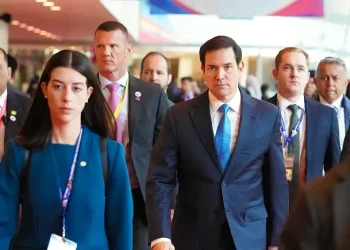U.S. Secretary of State Antony J. Blinken and Mongolian Foreign Minister Battsetseg Batmunkh announced a series of initiatives aimed at bolstering U.S.-Mongolia relations.
This strategic dialogue, held recently, covered a wide array of topics, including economic diversification, digital economy, education, space technology cooperation, and the promotion of democratic values.
A New Chapter in U.S.-Mongolia Relations
The recent dialogue marks a pivotal moment in the relationship between the United States and Mongolia.
As part of the discussions, both nations have agreed to launch several key initiatives that span across multiple sectors, reflecting a shared commitment to strengthening bilateral ties and promoting mutual prosperity.
USAID’s Five-Year Strategic Framework
At the heart of the discussions is the United States Agency for International Development’s (USAID) new five-year strategic framework for Mongolia, covering the period from 2023 to 2028. This comprehensive strategy is designed to:
- Strengthen democratic institutions and enhance national sovereignty
- Diversify Mongolia’s economy, particularly in energy and technology sectors
These initiatives will see USAID working closely with the Mongolian government, civil society, and the private sector to achieve these goals. The framework aims to foster economic growth while addressing pressing issues such as climate change resilience and energy sector reform.
Advancing the Digital Economy and Cybersecurity
Recognizing the growing importance of the digital economy, the United States and Mongolia have outlined plans to enhance cooperation in information and communication technologies. This includes efforts to:
- Promote digital trade and cybersecurity measures
- Support private-sector initiatives to develop the digital economy
Additionally, there will be targeted upskilling programs for Information and Communication Technology (ICT) teachers, focusing on high-demand skills like cybersecurity and data analytics.
These efforts are intended to boost Mongolia’s digital infrastructure and safeguard its cyber environment, aligning with global standards.
Education and Cultural Exchange Programs
Education and cultural exchange remain central to the U.S.-Mongolia partnership. The U.S. is expanding its educational outreach by:
- Opening a new American Space in Erdenet to broaden access to English language education
- Increasing the number of English Teaching Assistants in Mongolia by 50%
These measures are designed to deepen cultural ties and provide Mongolian students with more opportunities to study in the United States.
The initiative also includes continued support for programs like the Fulbright binational partnership and the U.S. Peace Corps, emphasizing educational and cultural exchange.
Trade and Investment
Strengthening trade and investment is another cornerstone of the discussions. Through the Trade and Investment Framework Agreement (TIFA), both nations are working to:
- Enhance transparency and predictability in the business environment
- Develop market mechanisms for the trade of export commodities
These steps aim to create a more favorable climate for business and investment, supporting Mongolia’s economic diversification and regional initiatives. Protecting intellectual property rights and ensuring fair competition are also high on the agenda.
Cooperation in Space and Technology
The United States and Mongolia are exploring opportunities for collaboration in space and technology, with initiatives focused on:
- Developing a bilateral space dialogue
- Advancing space situational awareness cooperation
This collaboration aims to ensure a peaceful, secure, and sustainable space environment. The initiatives reflect a broader strategic interest in promoting scientific and technological advancements.
Promoting Democratic Principles and Human Rights
Finally, the promotion of democratic principles and human rights remains a priority. The U.S. is committed to:
- Supporting media freedom and the rule of law
- Promoting gender equality and women’s empowerment
These efforts underscore a shared commitment to democratic governance and respect for human rights, which are fundamental to the U.S.-Mongolia partnership.
Final Thoughts
The initiatives announced by Secretary Blinken and Foreign Minister Battsetseg mark a new phase in U.S.-Mongolia relations, characterized by deeper economic, technological, and cultural ties.
These efforts aim to foster a more prosperous and democratic future for Mongolia, while strengthening the bond between the two nations.
As these projects unfold, they promise to bring significant benefits to both countries, reflecting a shared vision for a stable and prosperous Indo-Pacific region.
Sources: THX News & US Department of State.









